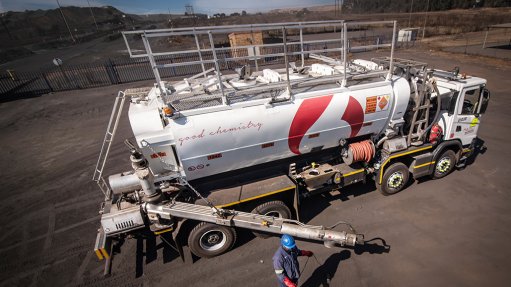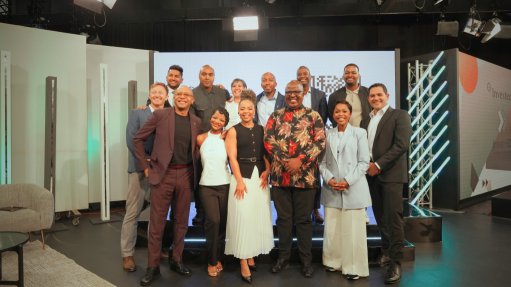Working for a living Part II
This is the second column in which I detail my experiences of having to work to get money for my university fees. I am writing this to show all the university students who want to go to university and not pay any fees how much real-life education they are missing, I think this is a real tragedy.
At the end of my first year of university, I got a job at the West Driefontein gold mine. I knew nothing about gold mines but I remembered that, at some stage, West Drie had a huge flood and nearly the whole mine was lost. I had gone to university when I was 16 and so I was 17 when I arrived at the mine. My mother dropped me off (as instructed by the personnel department) at the administration offices. Two weeks before, I had gone to the mining medical centre, in Johannesburg, where I had to be medically examined to determine if I was fit enough to work underground. I was very fit and was given a ‘red ticket’, a certificate one has to have if one is going to work underground. At the mine offices, I gave them my details and my red ticket (they kept it until I left the mine).
The personnel officer then told me that I should go to the single quarters and arrange for accommodation. He told me to drive down the road for about 2 km and I would see the place on my left. I told him I did not have a car because I did not have a driver’s licence because I was not yet 18. He looked at me for a while and then asked if I really had been to university. I had a copy of my university results with me and that convinced him. But, I told him, it is no problem for me to walk. He told me to report for induction training at the training centre the following day and told me how to get there. So I hitched up my rucksack and walked to the single quarters.
The single quarters and my room there were ghastly – these were the old single quarters, and virtually all the inhabitants were miners who had no other home and were retired. Many of them had bad lungs from working years underground. There was nobody remotely as young as I was. Radio reception was very bad and there was no television in those days. I quickly found out that my time at the mine would be spent mostly walking from place to place, reading and being bitterly lonely.
The retired miners were amazingly racist and genuinely believed that the black people in South Africa had it real good.
The following morning I walked 5 km to the training centre, arriving at 07:00. The training group that I joined were new to the mine and many of them British immigrants (at the time, the South African government had an assisted immigration scheme to try to deal with the lack of artisans, since blacks were not allowed to be trained as artisans).
We saw a film about the dangers of heatstroke underground (I remember it clearly, 43 years later) and another safety film. Then the training officer addressed us. By way of introduction, he said (in Afrikaans) that we would be going shortly on a bus to orientate ourselves. One of the Brits stood up and said that he did not speak any black languages and could the instruction be repeated in English? It did not go down well at all.
The working hours on the mine were 07:00 to 16:00 from Monday to Friday and 08:00 to 11:00 on Saturdays. Having no car and being at work made it impossible for me to go to the bank and draw money. This only mattered a little – I was too young to go to a bar or the recreation club, and food was provided at the single quarters. All I could do was read or walk. It probably was character building – it did not seem so at the time. Next week: working underground.
Article Enquiry
Email Article
Save Article
Feedback
To advertise email advertising@creamermedia.co.za or click here
Press Office
Announcements
What's On
Subscribe to improve your user experience...
Option 1 (equivalent of R125 a month):
Receive a weekly copy of Creamer Media's Engineering News & Mining Weekly magazine
(print copy for those in South Africa and e-magazine for those outside of South Africa)
Receive daily email newsletters
Access to full search results
Access archive of magazine back copies
Access to Projects in Progress
Access to ONE Research Report of your choice in PDF format
Option 2 (equivalent of R375 a month):
All benefits from Option 1
PLUS
Access to Creamer Media's Research Channel Africa for ALL Research Reports, in PDF format, on various industrial and mining sectors
including Electricity; Water; Energy Transition; Hydrogen; Roads, Rail and Ports; Coal; Gold; Platinum; Battery Metals; etc.
Already a subscriber?
Forgotten your password?
Receive weekly copy of Creamer Media's Engineering News & Mining Weekly magazine (print copy for those in South Africa and e-magazine for those outside of South Africa)
➕
Recieve daily email newsletters
➕
Access to full search results
➕
Access archive of magazine back copies
➕
Access to Projects in Progress
➕
Access to ONE Research Report of your choice in PDF format
RESEARCH CHANNEL AFRICA
R4500 (equivalent of R375 a month)
SUBSCRIBEAll benefits from Option 1
➕
Access to Creamer Media's Research Channel Africa for ALL Research Reports on various industrial and mining sectors, in PDF format, including on:
Electricity
➕
Water
➕
Energy Transition
➕
Hydrogen
➕
Roads, Rail and Ports
➕
Coal
➕
Gold
➕
Platinum
➕
Battery Metals
➕
etc.
Receive all benefits from Option 1 or Option 2 delivered to numerous people at your company
➕
Multiple User names and Passwords for simultaneous log-ins
➕
Intranet integration access to all in your organisation


















